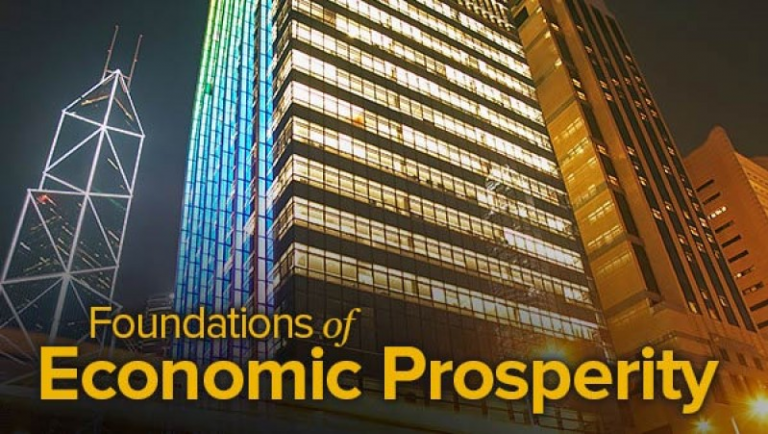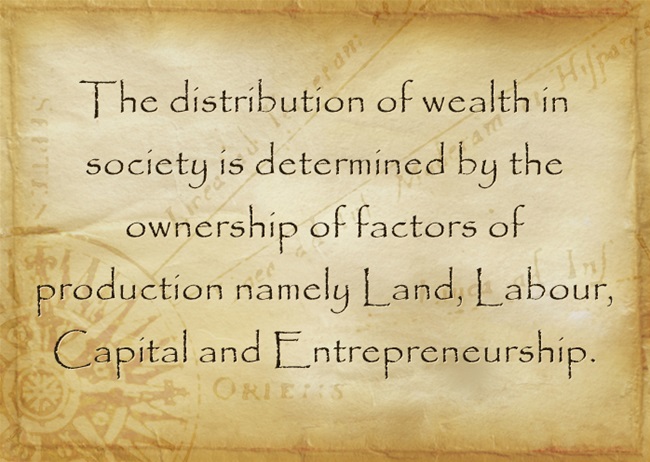
According to economists, the distribution of wealth in society is determined by the ownership of factors of production namely Land, Labour, Capital and Entrepreneurship. So, people who own one or more of the factors use them as sources of income as they engage in economic activities. You pay me rent for using my land, wages for labour, interest for capital and profit goes to the entrepreneur.
Based on the above, we can capture all individuals in the society and model a possibility of economic prosperity for all. We will be making some assumptions along the way.
Before we go further let us agree that all human beings have at least one factor of production, hence, this implies that we all are capable of earning income upon putting our factor input to a payable service. In this model, only those who fall in the category of children are excluded from factor owners, in that they are not of working age; child labour is illegal. Persons of disabilities to join this category as it is nearly impossible or extremely difficult to have them engage in many forms of economic activity.
Register for Tekedia Mini-MBA edition 19 (Feb 9 – May 2, 2026): big discounts for early bird.
Tekedia AI in Business Masterclass opens registrations.
Join Tekedia Capital Syndicate and co-invest in great global startups.
Register for Tekedia AI Lab: From Technical Design to Deployment (next edition begins Jan 24 2026).

Starting with the most popular factor of production labour, we can agree that all who are not children or disabled have possession of labour to offer services and earn income in the process. We also know that with skilled labour comes higher compensations. So, an individual of working age is free to find a paying employer. There exist some options from menial jobs to skilled jobs. If an individual is lucky enough to have taken advantage of free education offered by the Nigerian government from Primary to Junior Secondary School they will have more options of where to offer their labour no matter how little the compensation. Upon getting employment, the owner of labour can decide to acquire more skills and attract better payments. The individual is now able to fend for himself and others. In the current times, I have met young people who sponsored themselves through higher institutions of learning in Nigeria. We cannot deny that tuition in Nigerian higher institutions are affordable.
As for those fortunate to own lands, they have the choice to engage their land in real estate and receive rent. However, since the majority of the Nigerian population are employed in the agriculture sector and the country has vast arable land, we say the owners of land are the farmers. So, the farmers own one factor land from which rent comes. Also, they produce food for the country which qualifies them as entrepreneurs (those who combine the other factors of production to make a service or product).
Entrepreneurs as we know them come into the economy to solve difficult problems and earn a profit. We have several of such problems which could mean several opportunities for the entrepreneur. In our model, one opportunity for the entrance of the entrepreneur is the gridlock in the agricultural sector. Low output from the farmers, low pricing of farm produce, lack of access to markets, weather variations among many things leave the farmers perpetually poor. The entrepreneur will prosper in these settings.
Finally, we have capital, which includes machinery fixed or mobile used to produce goods or services. Owners of capital charge interest. These machines are needed in agriculture and other sectors, to boost productivity and increase profits.
So, if you have at least one of the four factors of production, you should be living above 3 dollars a day. Remember this is a simple model, meant to stimulate development thinking.



The explanation is a beautiful one for personal development. I love it.
Please, explain more on entrepreneur factor.